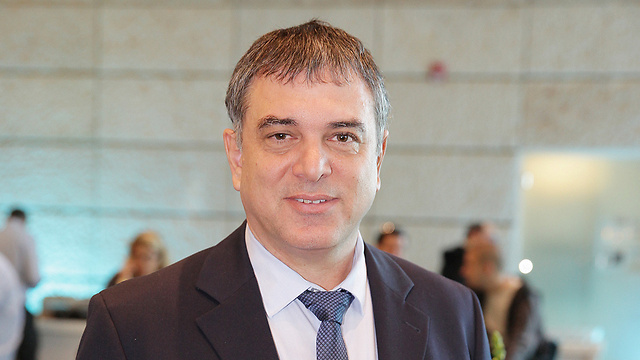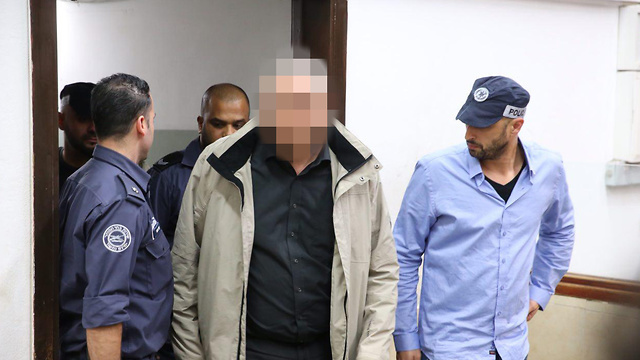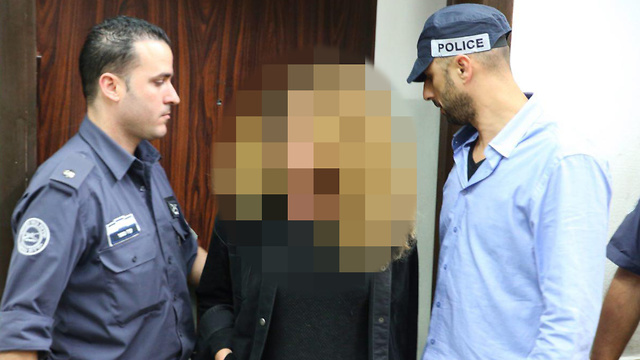

Police wanted to take over Case 4000 investigation months ago
Securities Authority questioned over 100 witnesses, looking into financial aspects of case, while police identified possible suspects, before finally being given the green light to begin open investigation this week; 'When things become clearer, everyone will understand how big this case is,' law enforcement official says.
"There was a reason we fought for this case," a police official said Sunday following the remand extensions of two close associates of the prime minister and several Bezeq officials.
The Securities Authority and the police, who launched a joint probe this week, suspect Walla! News, which is owned by the telecommunications giant Bezeq, gave the prime minister and his family favorable coverage in return for Netanyahu's help in promoting the companies' financial interests.

Several months ago, the police asked to receive the investigation materials from the Securities Authority and launch an investigation of their own, but their request was declined by the Securities Authority, which sought to complete its financial investigation first.
The Securities Authority's investigation, which began in June 2017, dealt with three different matters: the merger of Bezeq and satellite TV company Yes, which made Elovitch hundreds of millions of shekels; leaks from meetings of impartial board of directors committees discussing the deals with Elovitch; and the promotion of Bezeq's interests in the Communications Ministry.
Over 100 witnesses were questioned during the Securities Authority's investigation, including Or Elovitch, the Bezeq owner's son, who serves as a member of the board of directors; Bezeq CEO Stella Handler; and Amikam Shorer, Elovitch's right-hand man and Bezeq's Strategy & Business Development manager.
As the investigation progressed, it expanded beyond Bezeq, with one of the main suspects being Shlomo Filber, a close associate of Netanyahu's and then the director-general of the Communications Ministry. Filber and Netanyahu were the ones to approve the Bezeq-Yes merger.
Filber is also suspected of providing Bezeq officials with material from the Communications Ministry and taking steps to benefit the company. As a result of the investigation, Filber was removed from the Communications Ministry.
Netanyahu, who was the communications minister at the time, has not yet been questioned on the case, but inside sources said Sunday police will likely have no choice but to ask him to testify.
The prime minister and his wife Sara have been close friends of Elovitch and his wife for some 20 years. This relationship led Attorney General Avichai Mandelblit to instruct Netanyahu to stop dealing with any issue that could affect Bezeq, and Netanyahu eventually had to appoint a different minister for the Communications Ministry.
While the Securities Authority conducted its investigation, a small team in the police's economic and financial crime investigations unit began gathering material about the main players in the case and identify key players that can be pressed for information.
When the Securities Authority completed its investigation, it submitted its recommendation in November to indict the main suspects. After receiving the approval of the attorney general, investigators from the Securities Authority and the police's economic and financial crime unit began the open investigation in the case.
"When things become clearer, everyone will understand how big this case is," a law enforcement official said.
Dr. Zvi Gabbay, the former head of the Enforcement at the Israel Securities Authority, explained to Ynet that "even though the Securities Authority has an excellent investigations unit, it is not a unit that is used to or knows how to—and some would say not authorized to—handle government corruption offenses, or bribery, fraud and breach of trust offenses.
"This is why at the end of the investigation, the case was sent to the Tel Aviv District Attorney Office's Taxation and Economics Department, and then it is sent back to complete the investigation. While this case was given a new number, 4000, this isn't a case that's starting from zero."
Dr. Gabbay asserted the police had a state witness, "someone high-ranked. You have to understand that in cases like this, which are circumstantial, the evidence must be beyond reasonable doubt, and a state witness is such evidence. Without such testimony, this would be a very difficult case. That is the challenge the investigators now face."
The state witness can either be one of the suspects or one of Netanyahu's close associates, he said. "This is a dramatic stage of the investigation, and the suspects go through horrible experiences. To them, the sky is falling, and in situations like that they start to think who do they owe what, and what would be the best move for them. The investigators also put a lot of pressure to lead people to these thoughts. It's definitely possible for someone to think: It would be better for me to take care of myself, and say what I know, than maintain loyalty, or a relationship I have with one person or another," Dr. Gabbay explained.
Two of Netanyahu's close associates gave their testimony to police on Sunday—former PMO chief of staff David Sharan and former PMO director-general Harel Locker. Past and present officials from Walla! News also provided testimony, including CEO Ilan Yeshua and former editor-in-chief Yinon Magal. None of them are suspects.
Calcalist reported on Monday that the police and the Securities Authorities issued foreclosure orders on the assets of some of the seven suspects arrested on Sunday—several senior Bezeq officials and two of the prime minister's close associates. The freezing orders include bank accounts, vehicles, and other assets.
Meanwhile, attorney Jack Chen, who provided Netanyahu with legal counsel in Case 1000 and Case 2000, two other investigations against him, has temporarily left the prime minister's defense team due to a conflict of interest, as he also represents Bezeq majority shareholder Shaul Elovitch.
Eli Senyor, Gilad Morag, Roi Bergman, Alexandra Lukash and Nir Cohen contributed to this report.


















